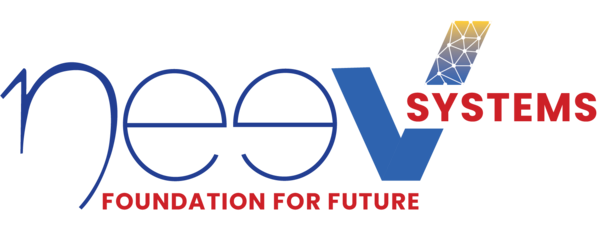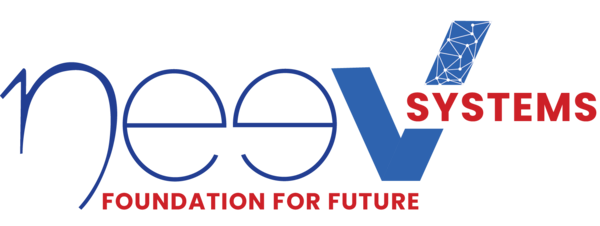Executive Summary
This blog explores the critical role of ESG reporting in today’s globalized business landscape. It discusses the UN framework for ESG reporting, the key requirements for adequate disclosure, and the tools and technologies available to support companies in their sustainability journey.
The blog also highlights the growing importance of ESG as a critical consideration for investors and stakeholders. It emphasizes the need for companies to adopt a proactive approach to ESG reporting to demonstrate their commitment to sustainability and build trust.
Key Takeaways
- ESG reporting is essential for businesses to demonstrate their commitment to sustainability and build trust with stakeholders.
- The United Nations framework provides a valuable guide for companies to develop effective ESG reports.
- Key reporting requirements include environmental, social, and governance factors.
- Data and cloud can help streamline ESG reporting and improve data management.
Sustainability has become a non-negotiable aspect of the industry, and ESG reporting isn’t just a compliance checkbox but a critical business strategy. Recognizing this urgency, the United Nations has established ten guiding principles to help organizations navigate their ESG journey.
The stakes are high. The narrative has now changed, with forecasts predicting a massive US$33.9 trillion surge in ESG-related assets under management by 2026. It’s no longer about why companies should prioritize ESG but how they can do it effectively and stay ahead of the curve.
Achieving ESG goals in line with UN guidelines demands more than good intentions. It requires a proactive, systematic approach, including using ESG frameworks, reporting standards, and advanced data analytics to ensure accurate and comprehensive reporting.
If your organization grapples with connecting the dots on ESG strategy, you’re not alone. It’s time to rise above silos with cutting-edge analytical tools and best practices for ESG reporting that can bring clarity and transparency to your ESG communication.
Overview of the UN ESG guidelines
The imperative for businesses to adopt UN-aligned ESG reporting is multifaceted. These frameworks provide a common language and structure for companies to disclose their sustainability performance. Here are 10 of the most prominent UN frameworks:
- United Nations Global Compact (UNGC): A voluntary initiative that asks companies to embrace ten universal principles in human rights, labor standards, environment, and anti-corruption.
- United Nations Sustainable Development Goals (SDGs): 17 global goals adopted by UN member states to achieve a sustainable future.
- United Nations Principles for Responsible Investment (UN PRI): Encourages investment professionals to incorporate ESG factors into their investment decisions.
- Taskforce on Climate-Related Financial Disclosures (TCFD): Provides recommendations for companies to disclose climate-related financial risks and opportunities.
- The Equator Principles: A set of environmental and social risk management standards for financial institutions.
- United Nations Principles of Responsible Banking (UN EPFI): Encourages banks to align their business strategies with the SDGs and the UN Global Compact.
- Modern Slavery Act: This UK legislation requires companies with a global turnover of at least £36 million to publish a statement detailing their actions to address modern slavery and human trafficking within their supply chains.
- IFC Environmental & Social Performance Standards and Guidance Notes: Set out the requirements for companies to manage environmental and social risks and impacts in their projects.
- International Organization for Standardization (ISO) Environmental Standards: Provide a framework for companies to manage their environmental performance, including ISO 14001:2015 Environmental Management System.
- United Nations Social and Environmental Standards (UN SES): Guide companies in the areas of human rights, labor standards, the environment, and anti-corruption.

Key reporting requirements
Only 13% of global investors believe ESG is a “passing fad,” further underscoring the conviction in ESG as a long-term investment trend. This suggests that most investors (87%) view ESG as a permanent and pre-eminent part of the investment landscape.
This surge reinforces the growing importance of ESG reporting for businesses seeking to attract responsible investors and enhance their long-term value. To achieve this peak, the key reporting requirements are as follows:
Environmental reporting
Environmental reporting is a crucial component of ESG disclosure. Companies must provide information on their environmental impact, including:
- Greenhouse gas emissions
- Energy consumption
- Water consumption and management
- Waste management
- Biodiversity
- Pollution
Multi-national law firm achieves CSR and sustainability performance improvements with centralized ESG reporting
DWF, a multinational law firm, sought to enhance its Corporate Social Responsibility and Sustainability efforts. Recognizing the need for efficient reporting, they implemented Diligent ESG. This software solution centralized sustainability data from various offices, providing a comprehensive performance overview.
DWF’s green team could focus on achieving targets rather than manual tasks by automating data collection and analysis. This led to significant improvements, including a 15% reduction in paper waste, increased teleconference use by 150%, and 80% waste recycling. Benefits included a unified global platform, up-to-date reporting, and customizable dashboards for internal and external stakeholders.
Social reporting
Social reporting focuses on a company’s impact on society. The essential areas of social reporting include:
- Human rights
- Labor relations
- Community engagement
- Diversity and inclusion
- Supply chain management

Governance reporting
Governance reporting focuses on a company’s management structure, corporate governance practices, and risk management. Key areas of governance reporting include:
- Board of directors
- Executive compensation
- Risk management
- Anti-corruption
- Internal controls
Additional considerations
In addition to the critical reporting requirements outlined above, companies should also consider the following:
- Materiality: ESG reporting should focus on issues that are material to the company’s business and of interest to stakeholders.
- Stakeholder engagement: Companies should engage with stakeholders to understand their expectations and priorities and ensure their ESG reporting is relevant and responsive.
- Assurance: Companies may have their ESG reports independently assured to enhance their credibility.
Framework alignment: Companies can use frameworks such as the Global Reporting Initiative (GRI) or the Sustainability Accounting Standards Board (SASB) to guide their ESG reporting.
Tools and technologies for compliance
Compliance with ESG standards is crucial for businesses to maintain their reputation, attract investors, and contribute to a sustainable future. While the UN guidelines help decide ethical and resourceful ESG reporting, various tools and technologies effectively manage ESG compliance efforts so an organization can abide by the guidelines. These compliance tools include:
Sustainability data management platforms
These platforms centralize ESG data from various sources, including financial systems, supply chain data, and employee surveys. They encourage organizations to track and analyze key performance indicators (KPIs) related to environmental impact, social responsibility, and governance practices.
Data visualization tools
Advanced analytics tools can help organizations identify trends, patterns, and risks within their ESG data. By using data mining, machine learning, and predictive analytics, businesses can gain valuable insights into their sustainability performance and identify areas for improvement.

Struggling with ESG data and compliance?
Sustainability reporting software
Revenue from 49% of major global companies is tied to business activities supporting the UN SDGs, underscoring the criticality of sustainability reporting software. These reporting tools streamline the process of generating ESG reports and comply with international standards like the GRI and SASB. They automate data collection, reporting, and disclosure, reducing the time and effort required for compliance.
Disclosure management platforms
These platforms enable organizations to manage their ESG disclosures across multiple channels, including annual reports, websites, and regulatory filings. They help ensure consistency and accuracy in reporting.
Enterprise risk management (ERM) software
ERM software helps organizations identify, assess, and manage risks related to ESG factors. By understanding potential risks, businesses can develop strategies to mitigate them and avoid negative consequences.
Training and development platforms
These platforms provide access to online training courses and resources on ESG topics, helping employees develop the knowledge and skills needed to contribute to the organization’s sustainability efforts.
Internal audit tools
These tools can help organizations conduct internal audits to assess their compliance with ESG requirements and identify areas for improvement.
Best practices in ESG reporting
Effective ESG reporting is essential for demonstrating a company’s commitment to sustainability and building trust with stakeholders. Here are some best practices to consider:
- Materiality assessment: Determine the most significant ESG issues relevant to your business, considering factors like industry norms, stakeholder expectations, and legal requirements.
- Stakeholder engagement: Seek input from employees, investors, customers, suppliers, and other relevant parties to understand their expectations and concerns.
- Data accuracy and reliability: Ensure that the data used in your report is accurate, reliable, and verifiable. Consider conducting independent audits to verify the accuracy and completeness of your ESG data.
- Consistency and comparability: Align your reporting with established frameworks like the GRI and SASB. Maintain consistency in your reporting methodologies and metrics over time to enable meaningful comparisons.
- Transparency and disclosure: Disclose all relevant information, including both positive and negative impacts. Ensure that your reporting is accurate and avoids misleading statements.
- Contextualization: Explain the context of your ESG performance, including industry benchmarks, regulatory requirements, and company-specific factors.
- Digital integration: Use digital tools to streamline data collection, analysis, and reporting. Keep creating interactive reports that allow stakeholders to explore data in more detail.
Continuous improvement: Establish clear sustainability goals and targets. Regularly monitor your progress and evaluate the effectiveness of your ESG initiatives.

The future of ESG disclosure
The future of ESG disclosure is poised for significant evolution. As global awareness of environmental, social, and governance issues continues to rise, companies are increasingly under pressure to demonstrate their commitment to sustainability. This trend will likely drive further advancements in ESG reporting standards, data collection methods, and stakeholder engagement.
In fact, a recent survey found that 74% of public companies plan to invest in sustainability reporting technology and tools over the next year, signaling a growing recognition of the importance of data-driven ESG disclosure.
Here are four outlooks into the future of ESG disclosure for you:
The scope is likely to expand
The quality and reliability are expected to improve
The role of technology is set to grow
Advancements in data analytics, artificial intelligence, and blockchain can streamline data collection and reporting, improve the accuracy of disclosures, and enable real-time monitoring of sustainability performance.
Regulatory developments will shape the future
Governments and international organizations are increasingly implementing regulations and standards to promote ESG reporting and accountability. This regulatory landscape will continue to evolve, and companies will need to stay informed and adapt to new requirements.
Conclusion
The United Nations Framework provides a valuable guide for companies to communicate their sustainability performance through ESG reporting. Implementing best practices can strengthen companies’ commitment to sustainability, build trust with stakeholders, and contribute to a more resilient and equitable future.
As a leading provider of ESG reporting solutions, Neev Systems works with SMBs to develop robust ESG strategies aligned with their business objectives, conduct materiality assessments, and integrate ESG considerations into corporate strategy.
To support sustainable practices, we, at Neev Systems, provide sustainable IT infrastructure consulting, cloud solutions for energy-efficient operations, and integration of green technology into business processes. Our goal is to empower businesses to drive positive environmental and social impact while maintaining operational efficiency and achieving long-term success.

Empower your business with effective ESG reporting.
Be a part of the ESG revolution and let us help you navigate the path forward.

Chakravardhan R Vaddi
A seasoned technology executive with nearly two decades of experience in Silicon Valley, Chakravardhan has worked extensively with leading global manufacturers and retailers. He specializes in implementing ERP, CRM, SCM, BI/Analytics, and cloud solutions, while fostering strong collaborations with the CxO community. With expertise in end-to-end P&L management, strategy, business development, marketing, service delivery, and partnerships, he has a proven track record of driving innovation and delivering impactful results.


